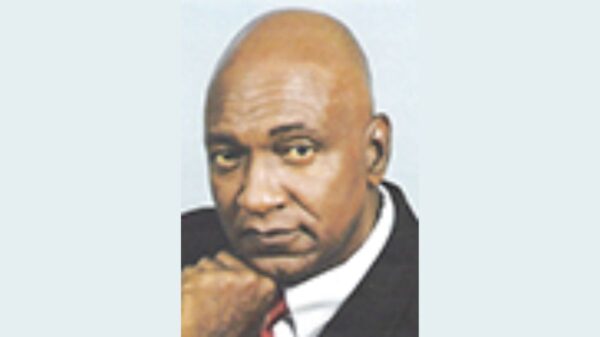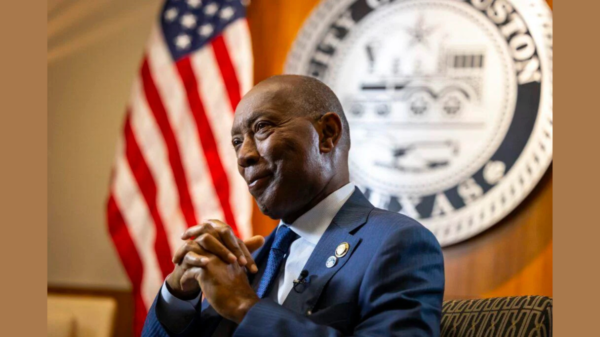
Because Of Them We Can
https://www.becauseofthemwecan.com/
By BOTWC Staff
Edward William Brooke III was born on October 26, 1919, in Washington, D.C, the United States House of Representatives reports. He was one of three siblings born to Edward Brooke Jr. and Helen Seldon. His father was a career lawyer with the Veterans Administration, earning his law degree at Howard University. Brooke graduated from Dunbar High School in 1936, following in his father’s footsteps and attending Howard University, graduating with a degree in sociology in 1941.
Just after the Pearl Harbor bombing, Brooke enlisted in the U.S. Army as a second lieutenant, serving overseas in World War II, stationed with the segregated 366th Infantry Regiment at Fort Devens in Massachusetts. The irony of being a Black man fighting a war while facing racial oppression wasn’t lost on Brooke, and he spoke out about his treatment while in the service, specifically remembering the time the Massachusetts army base enforced a whites-only policy for all recreational clubs, pools, and even the general store.
“In every regard, we were treated as second-class soldiers, if not worse, and we were angry. I felt a personal frustration and bitterness I had not known before in my life,” Brooke once recalled.
His irritation led him to begin defending Black military men in court. While not yet having formal legal training, he earned a good reputation as an effective public defender and a “soldier’s lawyer.” His work on the military base sparked his desire to pursue a law education; Brooke went on to earn his Bachelor of Laws in 1948 and Master of Laws degrees in 1949 from Boston University.
Meanwhile, his time abroad had served him well, Brooke learning to speak fluent Italian. By the end of the war, he had risen to the rank of Captain, earning a Bronze Star and a Distinguished Service Award. While traveling through Europe, he met his first wife, Remigia Ferrari-Scacco, and the two married on June 7, 1947, having two daughters, Edwina, named for his deceased sister, and Remi. The couple divorced in 1978 and, in 1979, Brooke remarried, this time to Anne Fleming. That union produced a son, Edward W. Brooke IV.
Brooke continued to make a name for himself, declining offers from prominent law firms in favor of launching his own practice in Roxbury, a predominantly Black community in Boston. In 1950, he made the switch to politics, making his first run for the Massachusetts house of representatives. While he lacked party affiliation, he took advantage of a state loophole that allowed candidates to file under multiple parties. His plan worked and Brooke was endorsed by the Republican Party but was unsuccessful in the general election. Two years later, he would run again, winning the Republican nomination but losing to the Democratic opposition.
He took some time out from politics and returned to law, building necessary community relations that would serve him well in the future. In 1960, he made another bid, this time for Massachusetts secretary of state and, although he lost again, he gained more than one million votes in an election where future president John F. Kennedy was the Democratic Party’s presidential nominee.
For his diligence, Brooke made a name for himself as an honest and dedicated servant of the public. Republican Governor John Volpe subsequently appointed Brooke as Chairman of the Boston Finance Commission, where he was tasked with uncovering corruption in the Massachusetts municipal agencies. While serving out his two-year tenure, Brooke turned the agency around, boosting his popularity and making him one of the most beloved political figures in the state.
In 1962, he finally succeeded, winning an election and earning the Republican nomination for Massachusetts Attorney General. He became the only member of the party to win a statewide election and he made history as the first Black person to serve as state attorney general. Brooke gained national recognition and continued his mission of fighting corruption on the state level. While in office, he introduced a series of favorable policies that protected consumers’ rights and fought to end housing discrimination. Still, his good work was not without its fair share of challenges, receiving backlash from civil rights leaders for his refusal to support a 1964 boycott of the Boston school system by African-American students.
Brooke did his best to separate his legal interpretation from personal views regarding racial equality, and his stance gained him favor with white voters in the state. In 1966, Brooke wrote a book entitled The Challenge of Change: Crisis in Our Two-Party System. The work laid out many of Brooke’s personal political principles including his views on civil rights. While he was in full support of equality for African-American people, Brooke believed that legislation and quality education was the key to helping the Black community. He also believed that militant uprisings undercut the mission of the civil rights movement.
In 1965, he announced his run for the U.S. Senate, Brooke running a campaign against Democrat Endicott Peabody, the former governor of Massachusetts. He touted himself as a self-proclaimed “creative Republican,” courting voters on both sides of the fence and Brooke boasting of his commitment to peace.
“[I will work for] the establishment of peace, the preservation of freedom for all who desire it, and a better life for people at home and abroad,” said Brooke.
His attempts at bi-partisan politics worked and on November 8, 1966, Brooke won a seat in the 90th Congress with a staggering 62 percent of the vote. Although Blanche Kelso Bruce was the second African-American to serve in the United States Senate and the first to be elected to a full term, Brooke made history as the first African-American popularly elected to the Senate since Reconstruction. He was also the first Black politician from Massachusetts to serve in Congress. He served two full terms in the Senate from 1967, focusing heavily on championing the issues of low-income housing, increased minimum wage, and mass transit systems, the United States Senate reports.
He became the first Senator to integrate the Senate barbershop when he got his hair cut there. Brooke also worked incessantly to promote racial equality in the South, doing his very best to represent constituents equally regardless of race. Brooke spoke fondly of his time in the Senate, noting that he never experienced one moment of overt hostility because of his race. However, he couldn’t reconcile the in-person reality of his time as a Senator with the political dogma his peers attached themselves to that was in direct contradiction with his own interests.
“There was no hesitation or ill will that I could see. Yet these were men who consistently voted against legislation that would have provided equal opportunity to others of my race. I felt that if a senator truly believed in racial separatism, I could live with that, but it was increasingly evident that some members of the Senate played on bigotry purely for political gain,” Brooke once revealed.
He made the most of his time in political office, making changes whenever he could. He served on the Armed Services and the Joint Committee on Bicentennial Arrangements. He also served on the Aeronautical and Space Sciences, Banking and Currency, and Government Operations committees as well as the Housing and Urban Affairs committees. Brooke was appointed to the President’s Commission on Civil Disorders by President Lyndon B. Johnson and Brooke was one of the Senators who led the charge in attaching an anti-discrimination amendment to the Civil Rights Act of 1968.
When Dr. Martin Luther King Jr. was assassinated that same year, Brooke was one of the first congressmen urging his colleagues to recognize King’s birthday as a national holiday. He fought to extend the Voting Rights Act, and against police brutality when he traveled to Jackson State College to help ease tensions after the 1970 shooting of two Black students by police. Despite his efforts, Brooke’s Republican Party affiliation often put him at odds with Black leaders, many feeling he chose political interests over race. However, Brooke’s interests never actually were in step with the Republican party, his stances leaning more toward a liberal agenda in regard to social issues.
After a failed run in 1978, Brooke returned to D.C. where he resumed his career in law. He became chairman of the Boston Bank of Commerce and was named to the board of directors of Grumman. In 2002, he was diagnosed with breast cancer, using his influence to return to the spotlight and bring awareness to the disease in men.
“You never know in life what you’re going to be called upon to do,” said Brooke.
On June 23, 2004, President George Bush awarded Brooke the Presidential Medal of Freedom. In 2007, he published his autobiography entitled Bridging the Divide: My Life. He was awarded the Congressional Gold Medal in 2008 and passed away on January 3, 2015 at the age of 95.
Thank you for your service Mr. Brooke! Because of you, we can!
Meet Edward W. Brooke III, the first Black person elected to the Senate by popular vote. Photo Courtesy of Boston University Photography









You must be logged in to post a comment Login